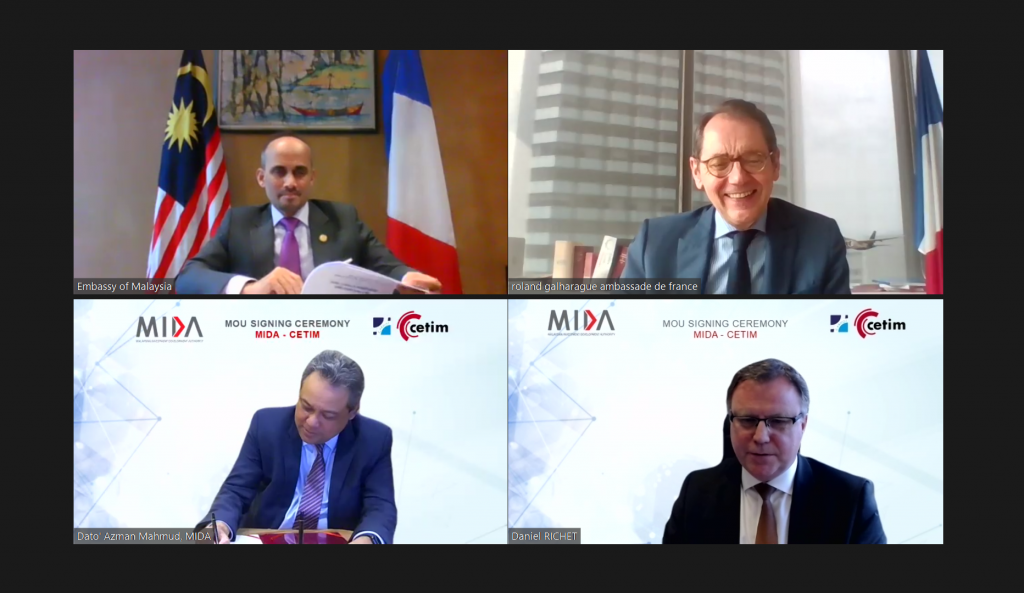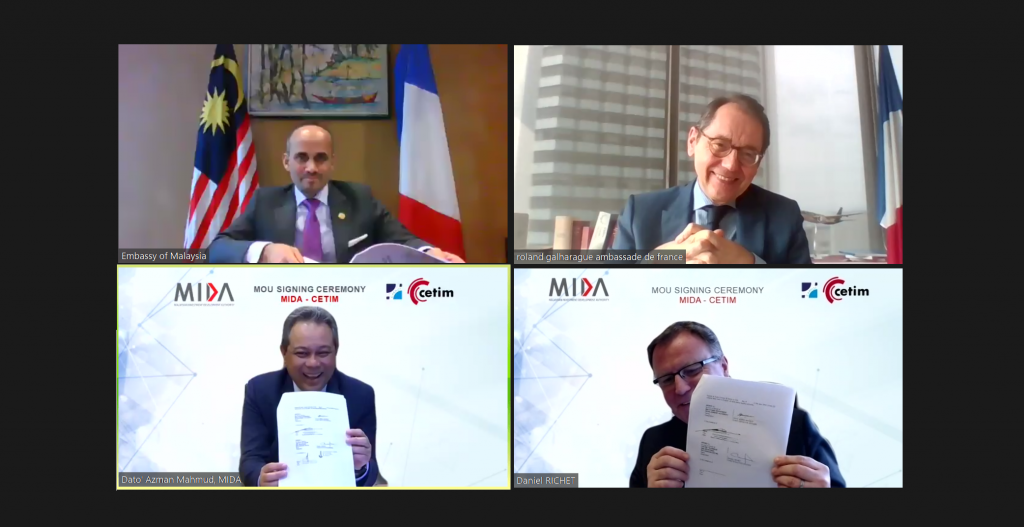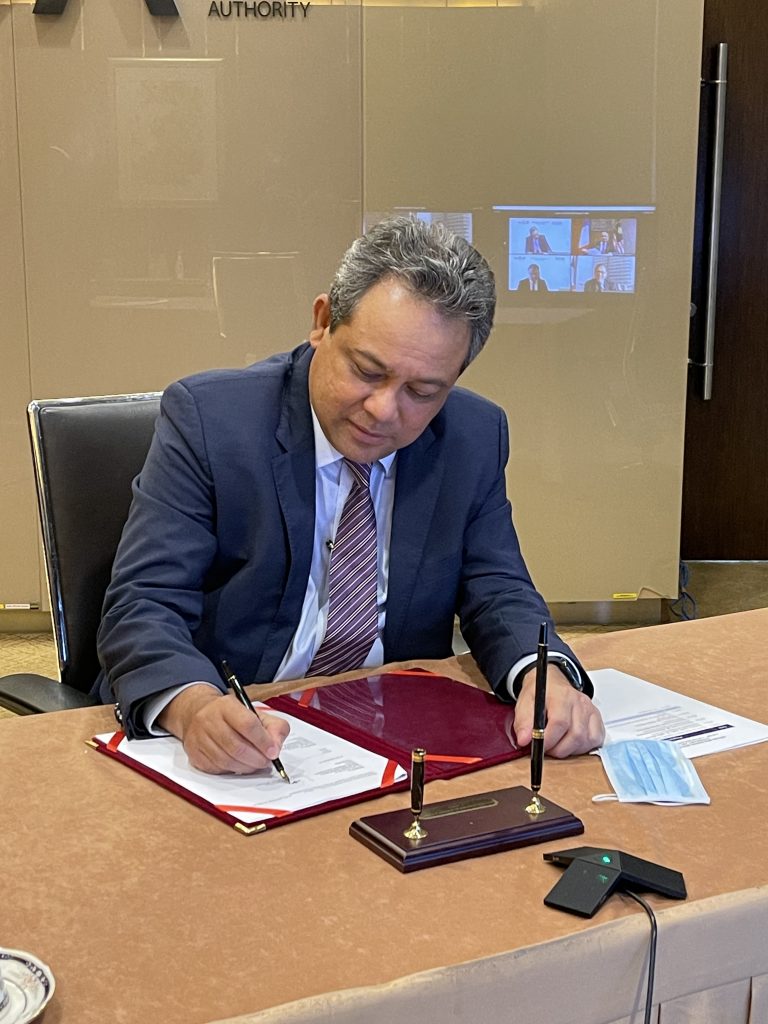Kuala Lumpur, 21 April 2021 – Globetronics Techology Bhd., a leading miniaturised optical sensors manufacturer in Malaysia, announced the establishement of a cloud-based state-of-the-art platform through the adoption of Industry 4.0 processes in their high volume mass production operations. The expansion worth RM50.2 million will incorporate Artificial Intelligence (AI), big data analytics and Extended Reality (AR + VR) into their end-to-end intelligent supply chain and manufacturing which enables higher levels of customisation, reduction of cycle times and superior quality traceability for a diversified product portfolio and dynamic customer needs.
The move towards integrating intelligence into the company’s machines and business processes is timely in addressing the non-skilled labour acquisition challenges as well as increasing the resilience in response to the COVID-19 pandemic. The implementation of automation to its processes will also help Globetronics to focus on high revenue generation activities such as predictive and prescriptive data to maximise machine operations. The initiative maps the path for the Company’s “Lights off” factory within the next five (5) years.
Mr. Arham Abdul Rahman, Chief Executive Officer of MIDA, expressed that “In line with the Government’s aspiration to spearhead rapid digital transformation in the manufacturing sector, Globetronics’ expansion will pave the way for enhancement in productivity, job creation and deepening the Malaysians skill set by leveraging on cutting-edge technology and emerging AI capabilities.”
“The introduction of Industry4WRD policy, served as a strategic direction for Malaysia to fully embrace Industry 4.0, including smart manufacturing and smart cities, smart grids, as well as smart solutions. While digitalisation is the antidote for business survival and growth in innovation-led value creation, Globetronics’ Industry 4.0 adoption will complement the electrical and electronics industry by producing advanced semiconductor photonic products through the utilisation of autonomous robots and smart manufacturing”, he added.
Globetronics’ IR4.0 transformation focuses on workforce transformation, reimagining manufacturing and workforce training via Extended Reality (ER). The Company’s ER technology will bridge the gap between the digital and physical world by superimposing live-streamed images with its extensive database of machines learnt data from research and development (R&D) as well as manufacturing phases. Subsequently a digital guru may be utilised to ensure a seamless work action and reduced human errors in day-to-day operations. The closed-loop integration of product, process and quality data via AI will serve as an inadvertent error prevention guarantee of its quality excellence. This will be the enabling technology to directly uplift lesser skilled workers and proportionally bring up the minimum wage.
The new recharacterising of Globetronics’ manufacturing processes will be the testbed to proliferate and intensify the use of big data across its end-to-end supply chain and manufacturing system. The workforce transformation will position the company to be the front runner in Malaysia in establishing a data-driven culture and hub to attract data science talents, locally and globally. Besides, the expansion would also demonstrate Globetronics’ commitment to continually invest in emerging technologies that are critical to support the constantly evolving landscape to ensure its business sustainability.
Globetronics’ new platform is set to gear up for exciting next generation semiconductor wafer-level packaging technology including the 2.5D, where the stacking of dies will be replaced by flip-chip on a silicon interposer.
About Globetronics
Globetronics is a Malaysian technology company that is involved in the manufacturing of Miniaturised Optical Sensors, Light Emitting Diode (LED) components and modules, Quartz Crystal Timing Devices, Integrated Circuits, Optoelectronic Products as well the provision of technical plating services. It’s main operating sites are in Penang and Kuala Lumpur. Globetronics is listed on the Main Board of Bursa Malaysia, with a market capitalisation of RM 1.8 billion and a has a staff strength of 1,200 employees.
About MIDA
MIDA is the government’s principal investment promotion and development agency under the Ministry of International Trade and Industry (MITI) to oversee and drive investments into the manufacturing and services sectors in Malaysia. Headquartered in Kuala Lumpur Sentral, MIDA has 12 regional and 20 overseas offices. MIDA continues to be the strategic partner to businesses in seizing the opportunities arising from the technology revolution of this era. For more information, please visit www.mida.gov.my and follow us on Twitter, Instagram, Facebook, LinkedIn and YouTube channel.
Media contacts:
Globetronics:
Ng Kok Yu
Email: [email protected]| Tel.: +604 819 4160
MIDA:
Manjit Kaur Balkar Singh (Ms)
Email: [email protected] | Tel.: +603 2267 3509
Globetronics Embarks on RM50 Million Industry 4.0 Transformation Programme for Business Sustainability
Content Type:
Duration:






